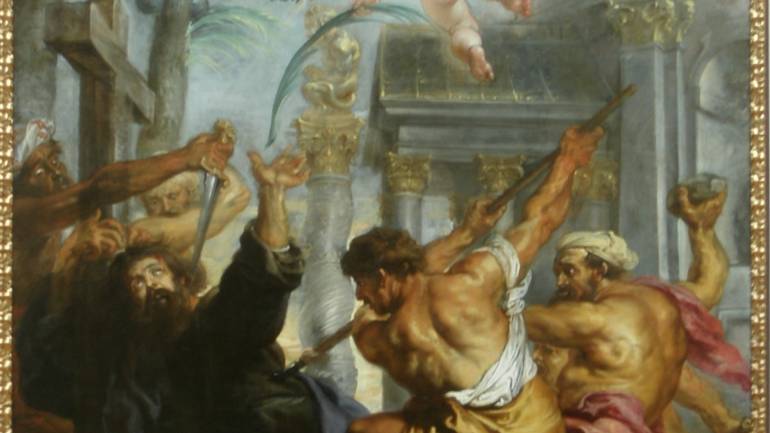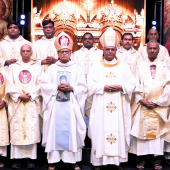The 1950th anniversary of the martyrdom of St. Thomas the Apostle

Christians in India are celebrating July 3, 2022 as the 1950th anniversary of the martyrdom of St. Thomas the Apostle.
St. Thomas was martyred on July 3, 72 AD, while he was praying in cave at the Little Mount (Chinnamala) near Chennai) and his body was taken and buried in Mylapore in Chennai.
Portuguese missionaries who arrived in India in 1521 found the apostle's tomb in Mylapore and later built a shrine over it around 1525. Tradition has it that part of the spear used to kill him and blood-soaked soil were buried in an earthen pit inside the tomb.
St. Thomas, one of the twelve apostles of Jesus Christ, came to India in 52 A.D., and landed at Muziris / Kodungallur Kerala. He preached the Gospel in the coastal towns of Kerala. Those who recvceived the faith formed seven communities or churches: Kodungallur, Kottakkavu, Palayur, Kollam, Kokkamangalam, Niranam and Chayall. After his ministry in Kerala, St. Thomas moved on to the east coast of India and proclaimed the Gospel in Thamizhakam, the then name of Tamil Nadu. The religious fanatics who opposed him put him to death by piercing with a spear.
There are people who doubt the apostolate of St. Thomas in India. The greatest testimony to it is the living community of Christians in Kerala, who claim their lineage to the first century. They are traditionally known as Thomas Christians or Nazranis, the follower of the Nazarene.
However, historical studies have shown that because of the extensive trade relation between Malabar (ancient name of Kerala) and the middle eastern and Mediterranean countries including Rome, even before the Christian Era, show that it was not difficult for St. Thomas to travel to India in the first century. In addition we have the testimonies of many Fathers of the Church as well as ancient travelers who mention the apostolate of Thomas to India and presence of Christian communities in India.
Radio Veritas Asia (RVA), a media platform of the Catholic Church, aims to share Christ. RVA started in 1969 as a continental Catholic radio station to serve Asian countries in their respective local language, thus earning the tag “the Voice of Asian Christianity.” Responding to the emerging context, RVA embraced media platforms to connect with the global Asian audience via its 21 language websites and various social media platforms.














